Science Education and Outreach at Festivals, Camps, and Events
– NOVEMBER 9, 2018
Sharing science can be lots of fun, especially during events that have a light-hearted atmosphere where people gather for a good time. This past year, researchers and outreach staff from consortia funded by the Gulf of Mexico Research Initiative participated in a variety of events to share ocean and marine science that’s being used to study the Deepwater Horizon oil spill.
Enjoy these pictures that show how the public is learning about Gulf of Mexico research!
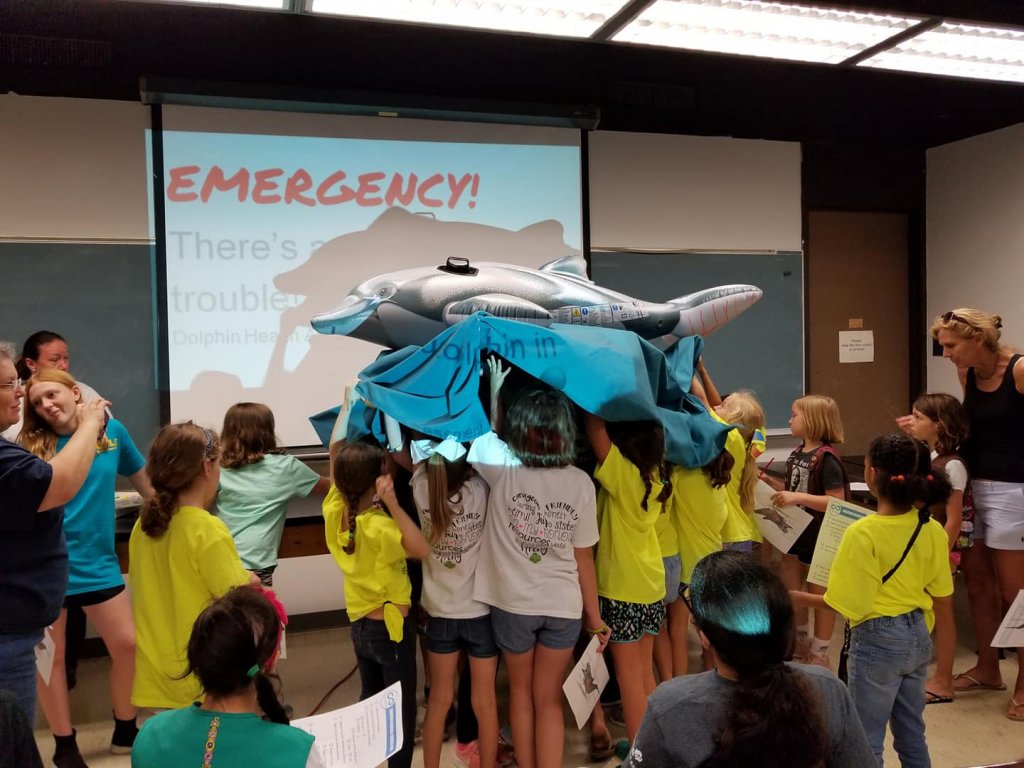
CARMMHA hosted several workshops and demonstrations at the Girl Scouts B.I.G. (Believe In Girls) event at the University of New Orleans. The girls learned about how scientists study dolphin health and participated in a mock dolphin assessment. See the CARMMHA website.
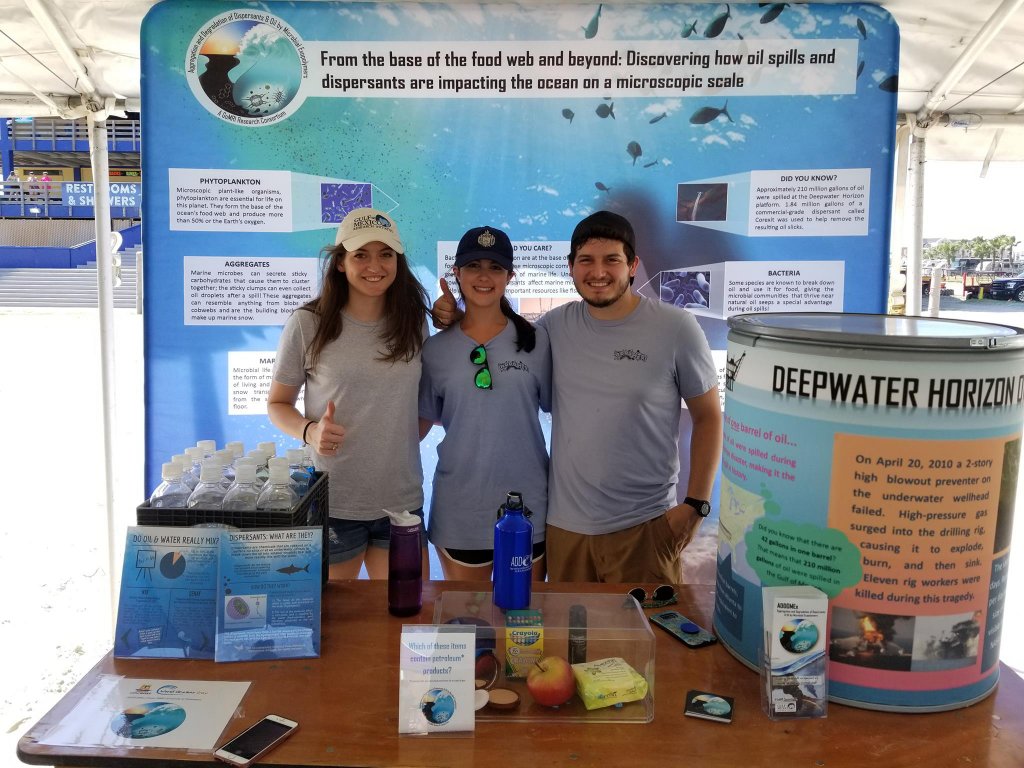
ADDOMEx graduate student Jennifer Genzer (middle) along with students Talia Rodkey and Austin Perez hosted a booth at Stewart Beach in Galveston, TX by Artist Boat for World Ocean’s Day. The ADDOMEx team examines interactions between oil and microbes (phytoplankton, bacteria) and the formation of marine-oil-snow. See the ADDOMEx website.
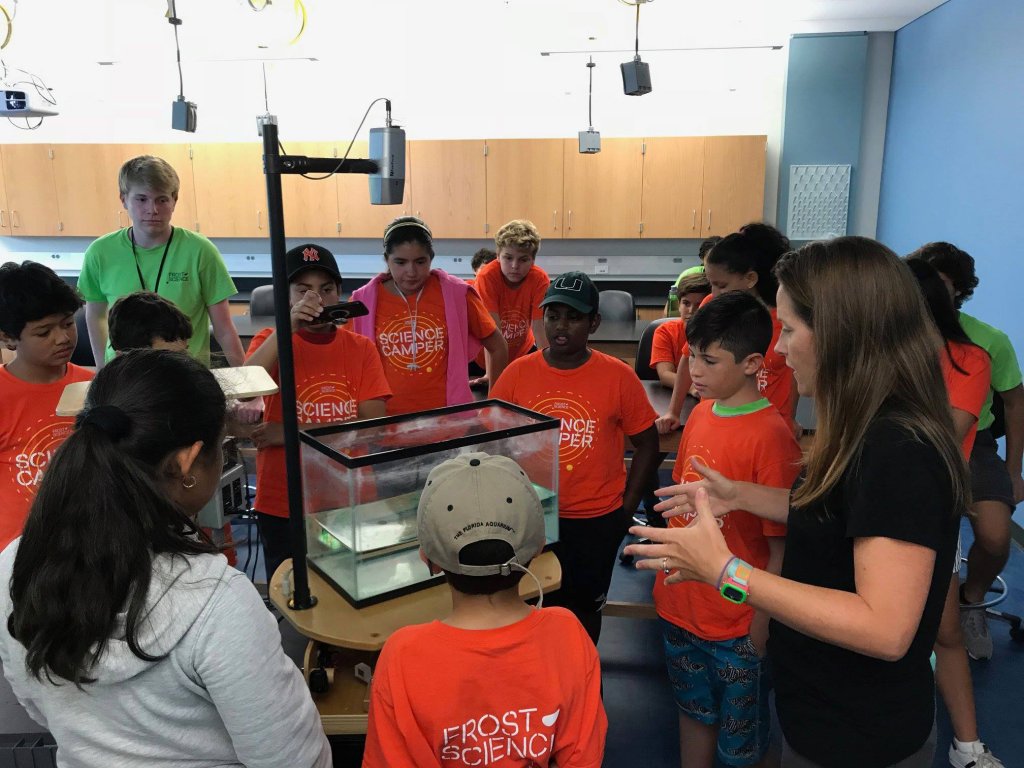
CARTHE outreach manager Laura Bracken talks to campers about currents, turbulence, and technology. The students were attending the Phillip and Patricia Frost Museum of Science summer camp and the IMPACT Upward Bound program in Miami. See the CARTHE website.
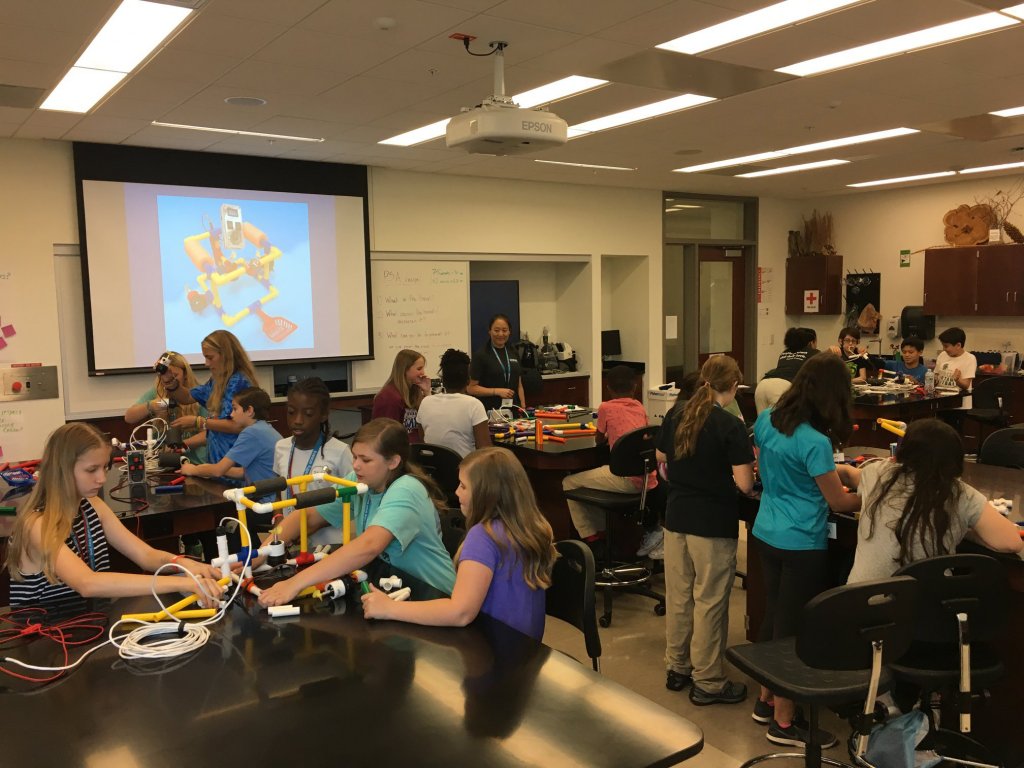
ECOGIG’s 3rd annual Ocean Discovery Camp, held during World Oceans Week, was at the University of Georgia’s Science Learning Center in partnership with its summer academy. The campers learned about deep ocean ecosystems; designed, built, and tested built their own remotely operated vehicles; created public service announcements about ocean conservation topics; and much more. See the ECOGIG website.
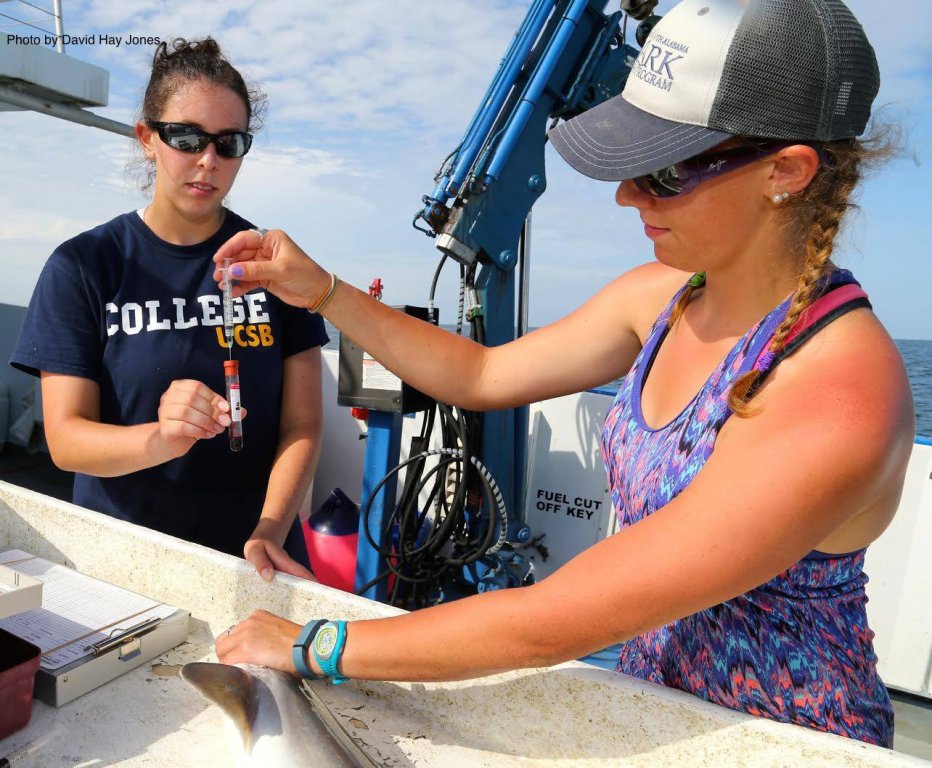
ACER graduate student Emily Seubert discussed her research about oil spill impacts on food webs and populations of sharks and rays during a “Boardwalk Talk” at the Dauphin Island Sea Lab’s public aquarium. See the ACER website.
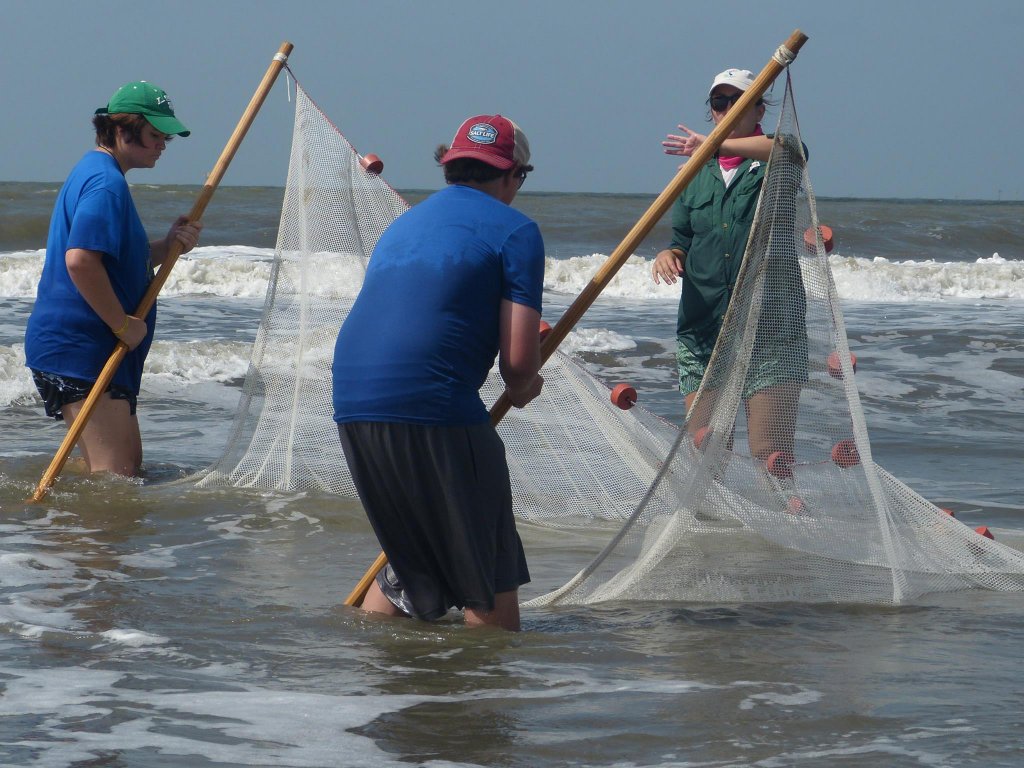
CWC LEAD campers learned how to encircle fish using a seine on Trinity Island. Campers came from Louisiana, seven other states, and one international country! LEAD is a one-week, experiential, science camp for high school students to gain knowledge of Louisiana’s coastal and marine environments. See the CWC website.
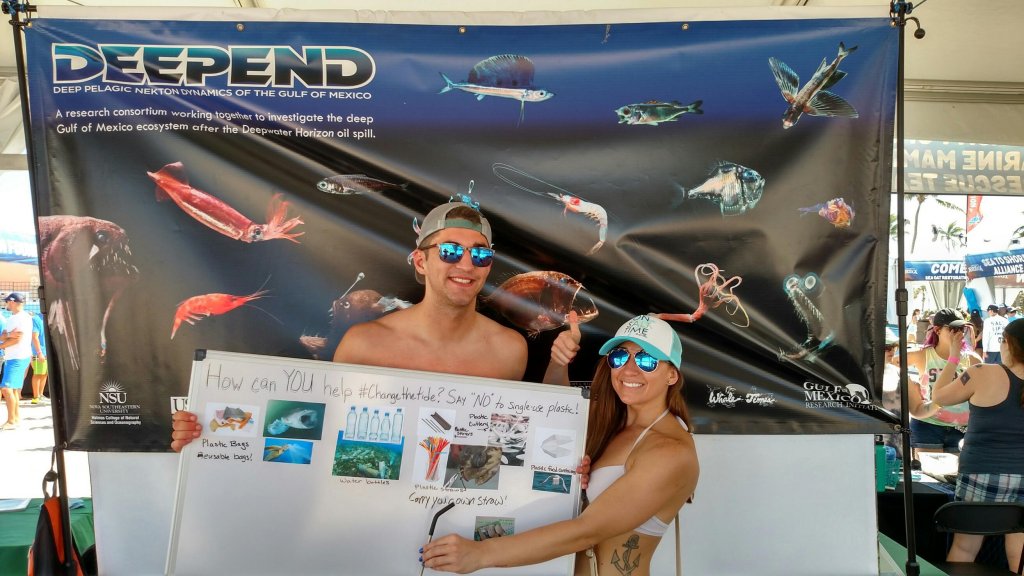
DEEPEND engaged with attendees at the Tortuga Music Festival. These fans are going to #ChangeTheTide by using paper straws and finishing their meals to avoid take away containers! See the DEEPEND website.
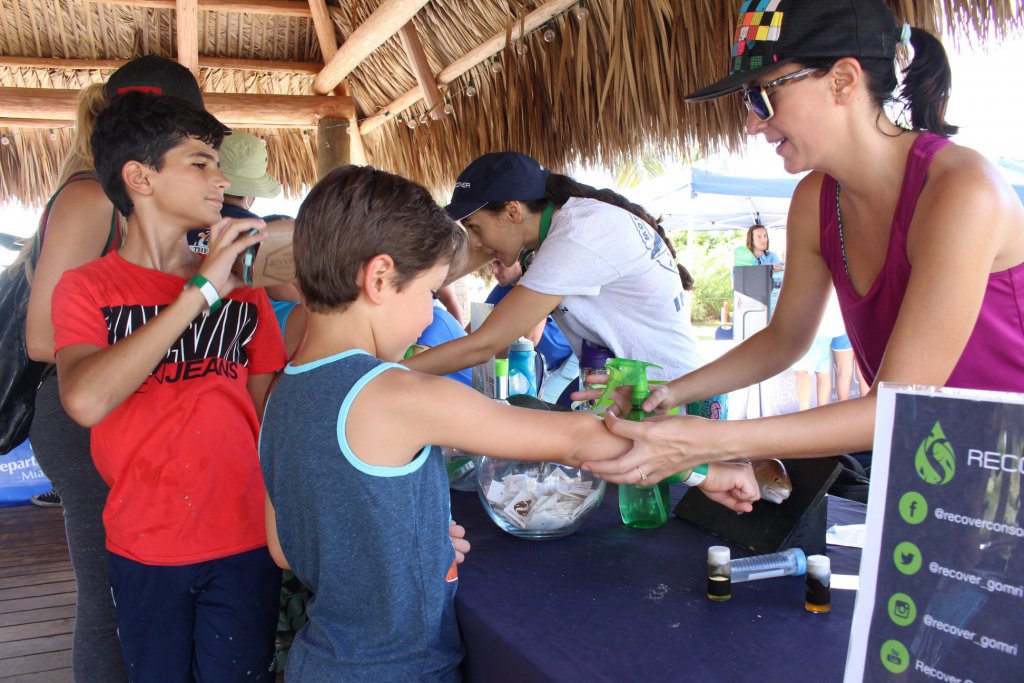
RECOVER shared their science about how they study the effects of oil on mahi-mahi and red drum during the Miami Seaquarium’s Birthday Beach cleanup at Historic Virginia Key Beach Park. See the RECOVER website.
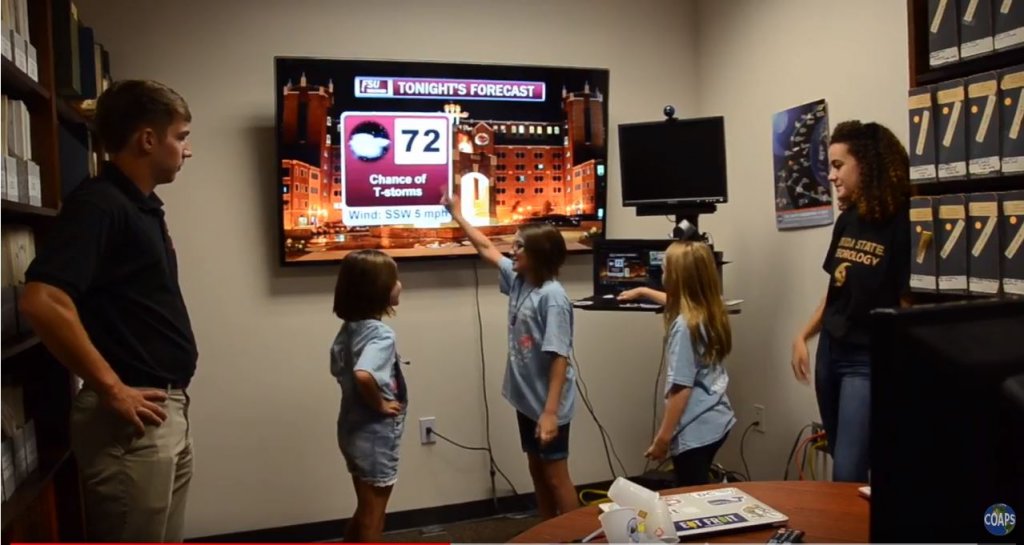
CSOMIO welcomed two dozen+ campers from the Oasis Center for Women & Girls “Girls Can Do Anything” camp. The girls learned about wind, hurricanes, clouds, and pseudo-coding using the Lego robot “Ada” (named after Ada Lovelace, sometimes referred to as the first computer programmer). The girls also had the opportunity to be on-camera weather broadcasters! See the CSOMIO website.
Credit: Florida State University’s Center for Ocean-Atmospheric Prediction Studies
By Nilde Maggie Dannreuther. Contact maggied@ngi.msstate.edu with questions or comments.
************
This research was made possible in part by grants from the Gulf of Mexico Research Initiative (GoMRI) to the Aggregation and Degradation of Dispersants and Oil by Microbial Exopolymers (ADDOMEx) consortium, Alabama Center for Ecological Resilience (ACER), the Coastal Waters Consortium (CWC), the Consortium for Advanced Research on Marine Mammal Health Assessment (CARMMHA), the Consortium for Advanced Research on Transport of Hydrocarbon in the Environment (CARTHE), the Consortium for Simulation of Oil-Microbial Interactions in the Ocean (CSOMIO), the Deep-Pelagic Nekton Dynamics of the Gulf of Mexico (DEEPEND) consortium, the Ecosystem Impacts of Oil and Gas Inputs to the Gulf (ECOGIG) consortium, the Relationship of Effects of Cardiac Outcomes in Fish for Validation of Ecological Risk (RECOVER) consortium.
The Gulf of Mexico Research Initiative (GoMRI) is a 10-year independent research program established to study the effect, and the potential associated impact, of hydrocarbon releases on the environment and public health, as well as to develop improved spill mitigation, oil detection, characterization and remediation technologies. An independent and academic 20-member Research Board makes the funding and research direction decisions to ensure the intellectual quality, effectiveness and academic independence of the GoMRI research. All research data, findings and publications will be made publicly available. The program was established through a $500 million financial commitment from BP. For more information, visit https://gulfresearchinitiative.org/.
© Copyright 2010-2018 Gulf of Mexico Research Initiative (GoMRI) – All Rights Reserved. Redistribution is encouraged with acknowledgement to the Gulf of Mexico Research Initiative (GoMRI). Please credit images and/or videos as done in each article. Questions? Contact web-content editor Nilde “Maggie” Dannreuther, Northern Gulf Institute, Mississippi State University (maggied@ngi.msstate.edu).





